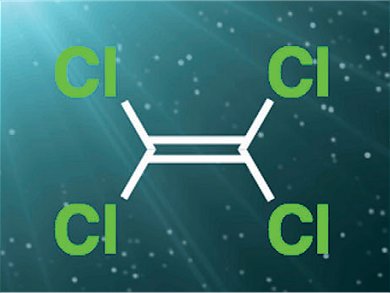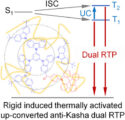Tetrachloroethylene (TCE) is a useful organic solvent for many chemical processes in the research laboratory and in industrial settings. It is also known to decompose upon photooxidation to give multiple products, which include chlorine gas, phosgene, and trichloroacetyl chloride. Although these small chlorinated molecules are very useful in organic synthesis, they are also highly toxic.
Akihiko Tsuda and co-workers, Kobe University, Japan, have developed a technique for using these by-products of TCE photodecomposition in situ for a variety of organic syntheses without harsh conditions and expensive experimental apparatus. The team developed an experimental setup in which TCE is photodecomposed by an immersed low-pressure mercury lamp. The decomposition products are then channelled into up to four different reaction vessels to perform four different reactions.
Ureas, amides, carbonates, esters, carbamates, enaminones, and organochlorides can all be made by using this method, which the researchers hope will offer a safer alternative to compounds such as phosgene for functionalizing organic molecules.
- Organic Syntheses with Photochemically Generated Chemicals from Tetrachloroethylene,
Ailing Zhang, Yuki Kuwahara, Yasuhisa Hotta, Akihiko Tsuda,
Asian J. Org. Chem. 2013, 2, 572–578.
DOI: 10.1002/ajoc.201300089




